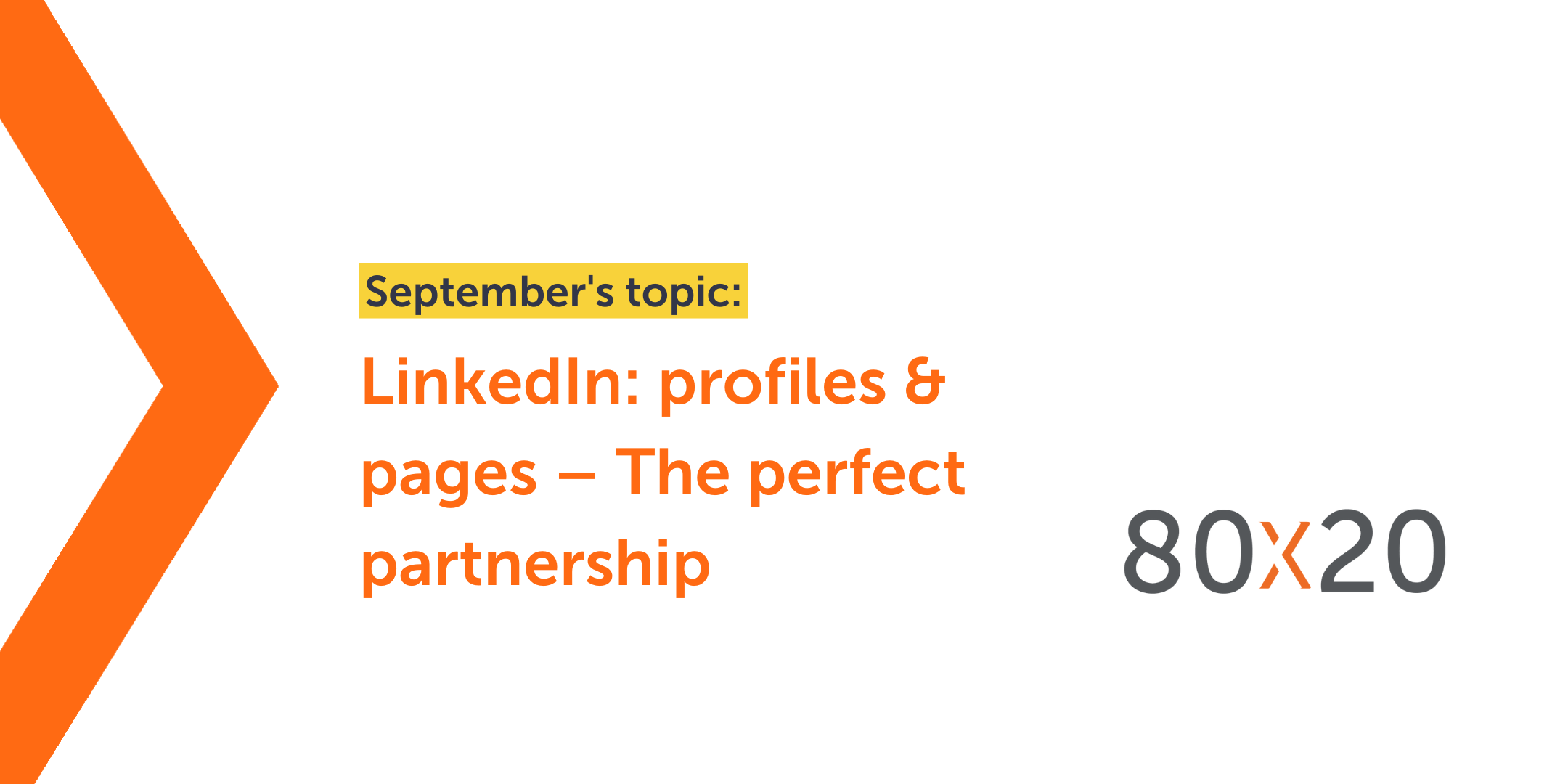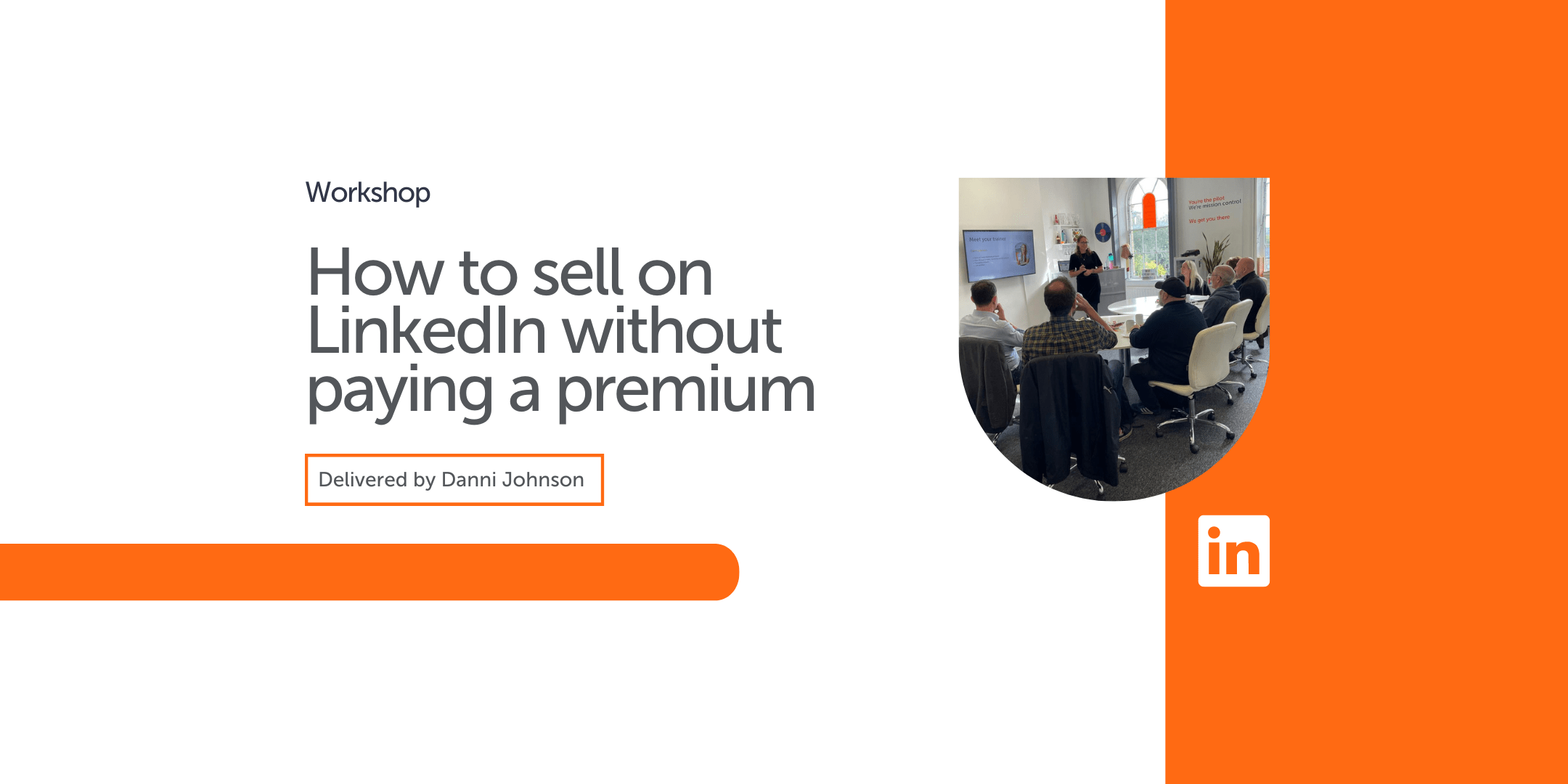Running a business isn’t easy. The lessons you learn through experience, just keep coming. In our September 80×20 event, our director, Jag, shared important lessons he has learnt over 16 years in business.
Why 80×20?
80×20 is a series of events created by Xpand that allow you to learn about the latest in the digital marketing and business world while getting the chance to network with other business owners and marketing professionals.
16 lessons I learnt in business and how they can help.
It all started for Xpand in 2007. I’d been made redundant from my marketing manager role in April 2007. This was only a couple of months before I was due to get married and also get the keys to my first house. I’d always wanted to run my own business, so I took the plunge and started trading as Xpand in June 2007. It was all very risky, but I knew it was what I wanted.
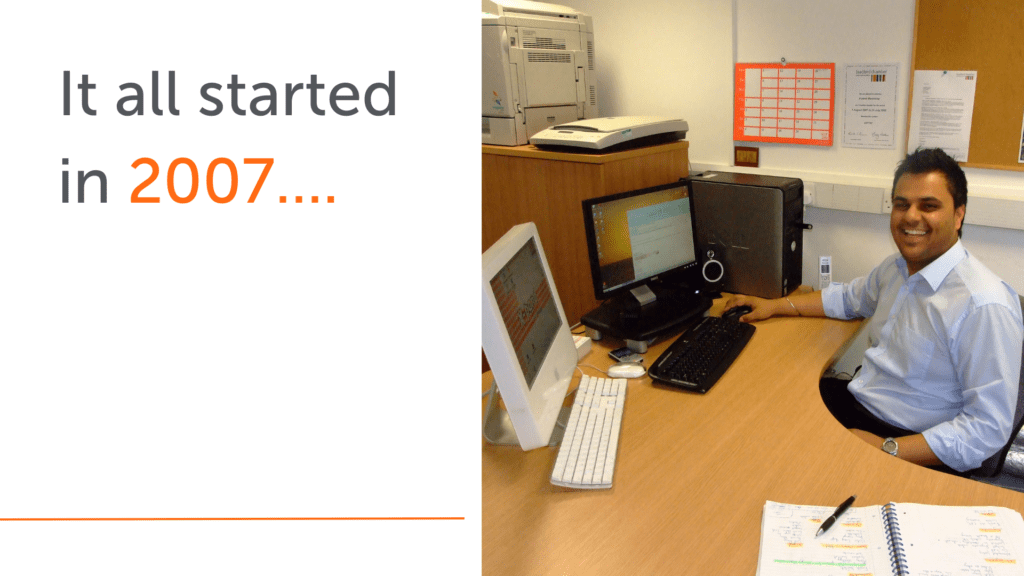
What could possibly go wrong? I had a degree in Business Management, numerous other qualifications and I’d grown up watching my family run businesses, surely this meant I’d be in for an easy ride? Oh, how wrong I was.
I categorised the 16 lessons I learnt in business into 8 different areas:
- Finance
- Sales
- Networking
- Marketing
- Strategy
- Community
- People
- You
Video
Slides
Finance
1. Get a good accountant
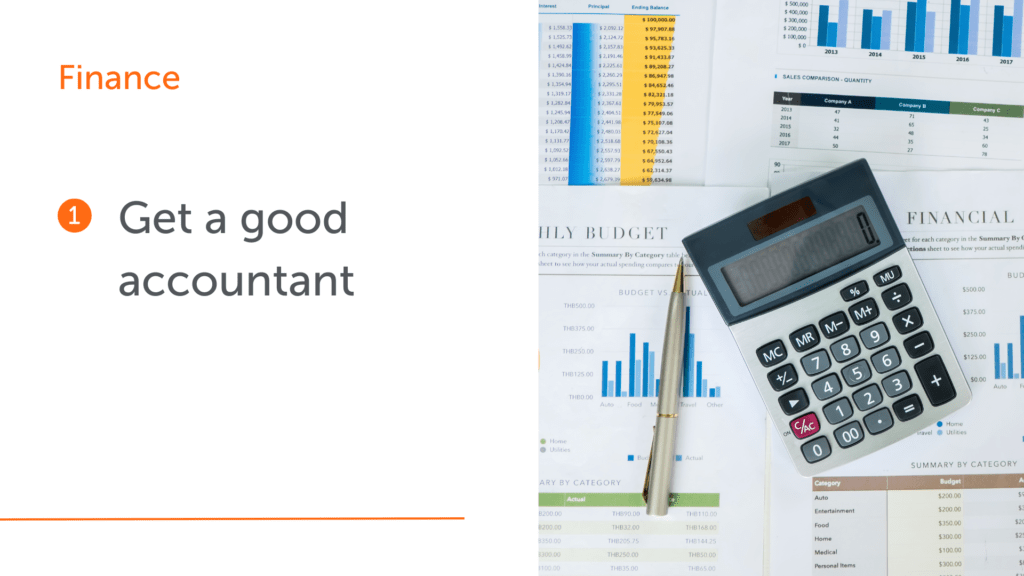
All the accountants I’ve worked with over the years have been good. However, I quickly learnt that an accountant’s role should be more than just filling in tax returns and self assessments.
I’ve worked with large practices through to one person practices but I’d been choosing the wrong supplier based on my circumstances at the time. What I needed was someone that worked alongside me and really understood my business so they could give me the advice I needed to move forward. Not just move forward based on where I am now, but to proactively forecast with me for the next few years and help me put the right systems in place to help my growth.
I needed an accountancy team that my business could grow with.
We use Not Just Numbers for our accounts, and they’re brilliant. They truly understand us. Debbie Whitaker, the MD, knows exactly what she should be taking away from me, work wise, and what to advise me to focus on.
2. Review and increase your pricing regularly
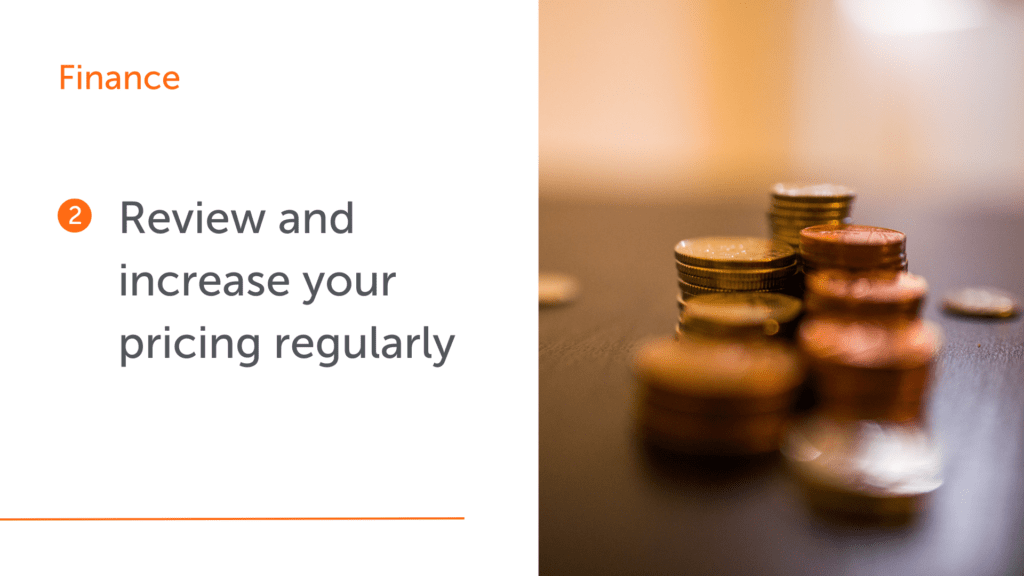
This is often a challenging situation for most business owners. There’s always a worry that if you increase your prices, you may lose clients. The recent economic situation has highlighted how important it is to keep a close eye on your pricing.
The cost of living has increased significantly, which has inevitably passed through to costs incurred in the business world e.g. energy prices, mortgage and rent increases. There’s increasing demand for staff wages to increase due to these challenges, so your pricing must be increased in order to absorb these costs as well as align with the rate of inflation.
In the past I’ve made the mistake of not reviewing my pricing for client retainers for a number of years. I now make sure I review our pricing on a yearly basis so we don’t get caught out by increasing costs.
If you think about your mobile phone contracts – you’ll receive a notification yearly to say that they’re increasing their pricing by a small percentage. You need to be able to cover that cost through increasing your pricing.
Sales
3. Know your value
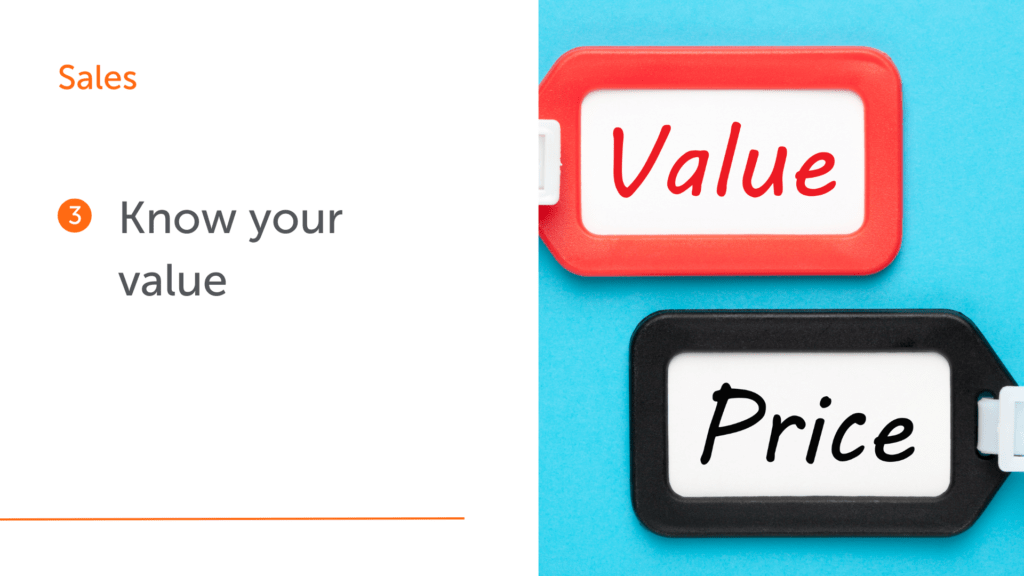
I charged £250 for my first ever strategy project in 2007. I must have spent roughly four days working on it. It goes without saying that I didn’t charge enough for the amount of time I put into it. I was new to business and I was passionate about doing a good job so I massively over delivered. By giving the client way more than they paid for, I was massively undervaluing myself.
Our process, and therefore pricing, is significantly different now. And that’s a result of me getting it wrong on quite a few occasions in the early days and learning from my mistakes.
It took me a while to understand what I should be charging. I actually used to feel guilty if I was making ‘too much profit’. But I was delivering value to the clients and helping them grow their business and make good money. They probably would have paid me double what I was charging, but I just didn’t understand my value at the time. Back then, I was selling on price, rather than the value that I knew I could deliver.
It’s so important to know your value. Over the years I’ve come across people that ask me for a cheaper price on something we’ve quoted for. Many years ago, when I used to give discounts, I always found that these clients were always the most challenging to work with.
Before I’d even done any work for them, they were asking for money off. If you think about it, what they were saying was ‘you’re not worth the money you’re asking for’. In other words, they didn’t see my value. This is always an indicator of a bad start to a working relationship.
Know your value folks, and hold your ground. The right type of client will see your value and pay you what you’re worth.
4. Don’t keep all your eggs in one basket
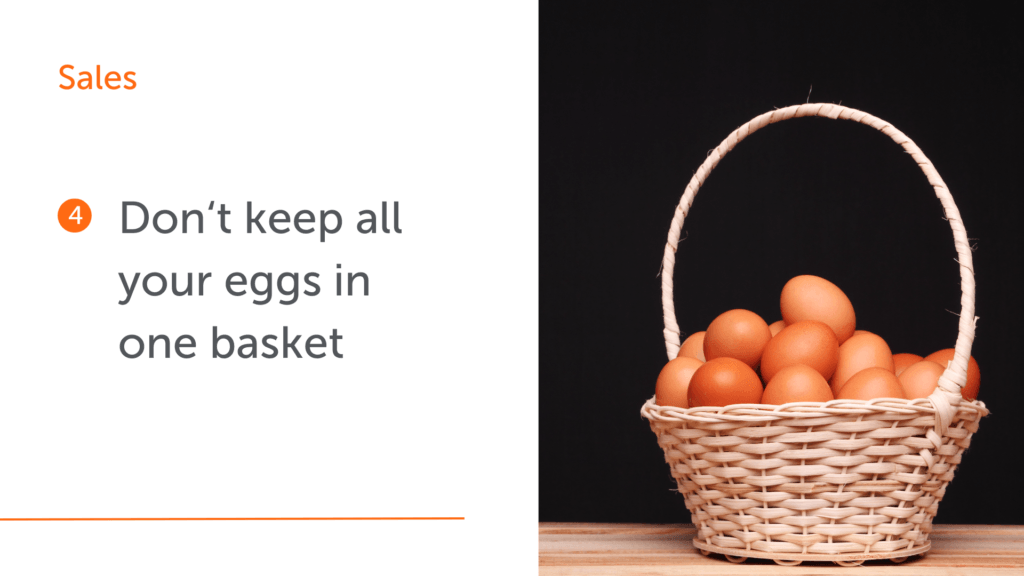
It’s difficult to win business when you’ve just started out in business. When I first started, I had one client that delivered approximately 60-70% of my turnover.
As this client’s business started to grow, I became complacent and a bit too secure with the work he was passing me. For what he was spending with me, he realised that he could employ someone in house for a much lower monthly cost. And that’s what he did.
Overnight, I lost 60-70% of my income. At the time it felt like it was the worst day of my life. However, it turns out it was one of the best things that ever happened to me. It gave me the shake up I needed and pushed me to restructure my whole approach to the business and got me out doing more networking and stepping outside of my comfort zone.
When you win a big client, you can easily find yourself in a situation where you have a lot of eggs in one basket. The key is to always review the spread of clients and minimise risk by having an even a spread as possible.
Networking
5. Say yes
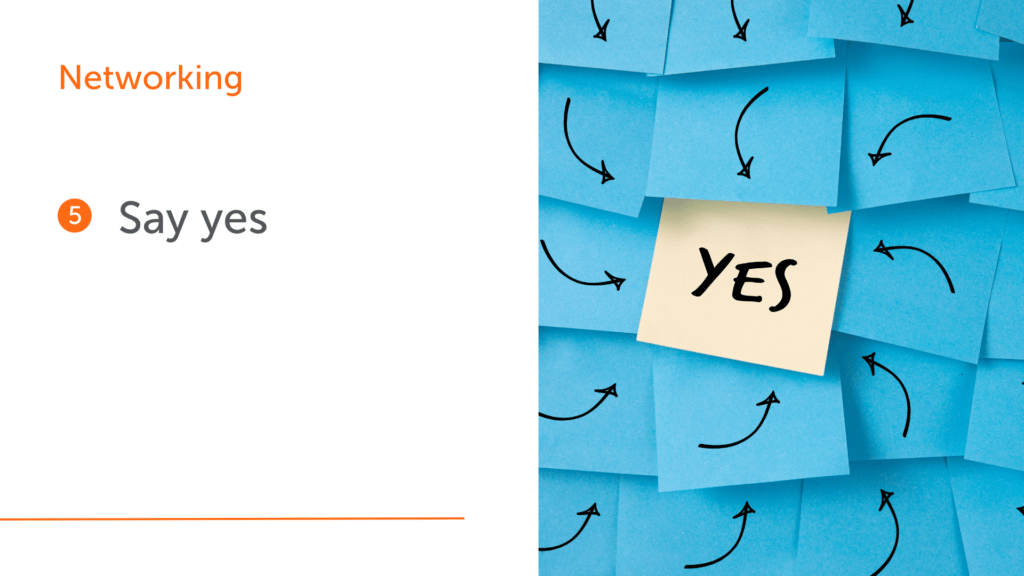
In 2014 I was invited to a networking event. I didn’t really know what the event was about. It was an evening event, I’d had a long day and I really didn’t want to go, and I almost didn’t.
Luckily for me, I pushed myself to go just to see what it was all about. It turns out the event was to explain how to get onto a supplier framework for 50% match funding for businesses that needed marketing projects. In other words, they only paid half the price, but we still got paid the full price because the other half was funded.
Had I not said yes to going to that event, Xpand wouldn’t have made it onto the registered supplier framework and we wouldn’t have had record sales that year. We still work with some of the clients that we won that year.
The moral of the story? Say yes. Be open to new experiences. Don’t be afraid of stepping outside of your comfort zone. Don’t be afraid of going to an event where you don.t know anyone. Others going to that event will be in the same boat. You just never know what can come from being present.
6. Create a community of people to hold you accountable
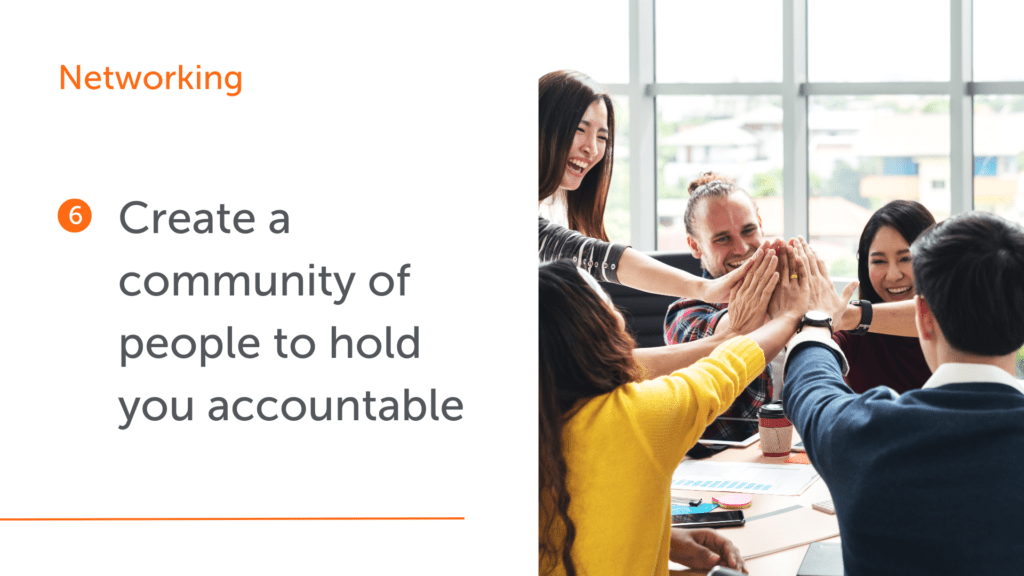
Over the years I’ve been involved in numerous groups of business owners that hold each other accountable. It’s very lonely when you’re the only person running your business, so getting the insight and thoughts of others that are in the same situation can be invaluable.
They may have experienced the same challenges you’re having and be able to give guidance around how they dealt with the situation.
As you build your accountability community, you’ll get to understand each other better. The longer that goes on, the more valuable their input can be.
I’ve had some great ideas from and problems solved by accountability partners over the years. I can’t recommend this kind of community enough.
Marketing
7. Marketing isn’t an emergency service
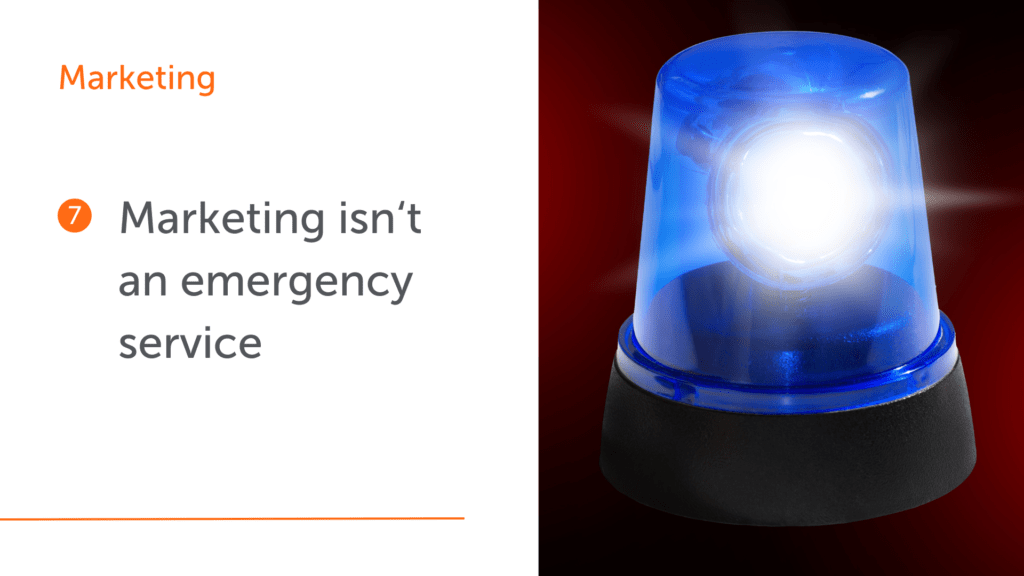
We often get enquiries from prospects that need results very quickly. They’re treating marketing as an emergency service. This is not how it works.
We’ve got a strong portfolio of results for clients we’ve worked with, and getting these results takes an amount of ground work that may take a good few months to get through.
The irony here is that I used to see marketing as an emergency service. We used to get enquiries where people would ask for fast results. I’d say yes to the opportunity. You may have heard the famous Richard Branson saying ‘if you get an opportunity, say yes, and then figure out how to do it after’. This can be a good saying to live by, but not in all cases.
I had to learn the hard way that some goals are just not achievable, no matter how passionate you are and how hard you work – you have to be realistic about some goals. Or more specifically, I learnt that I have to tell clients to be more realistic about their goals based on their budgets.
8. Know your audience

Knowing your audience is a marketing 101. Yet in the early days, I still fell into the trap of trying to be all things to all people. I struggled with my business identity because I was taking on whatever work I could. I wasn’t practising what I was preaching.
I can now look back and easily understand why I was doing it. I had a fear of missing opportunities if I positioned myself as only working within specific sectors. The outcome from that was people not really being able to clearly position Xpand in their minds on what we specifically did.
I learnt that I had to overcome this fear and narrow down on specific audiences. And if an audience doesn’t work out for you, it’s not a problem, you can adjust it. There’s always a natural evolution in the things you do in business.
Strategy
9. Invest in a coach/mentor
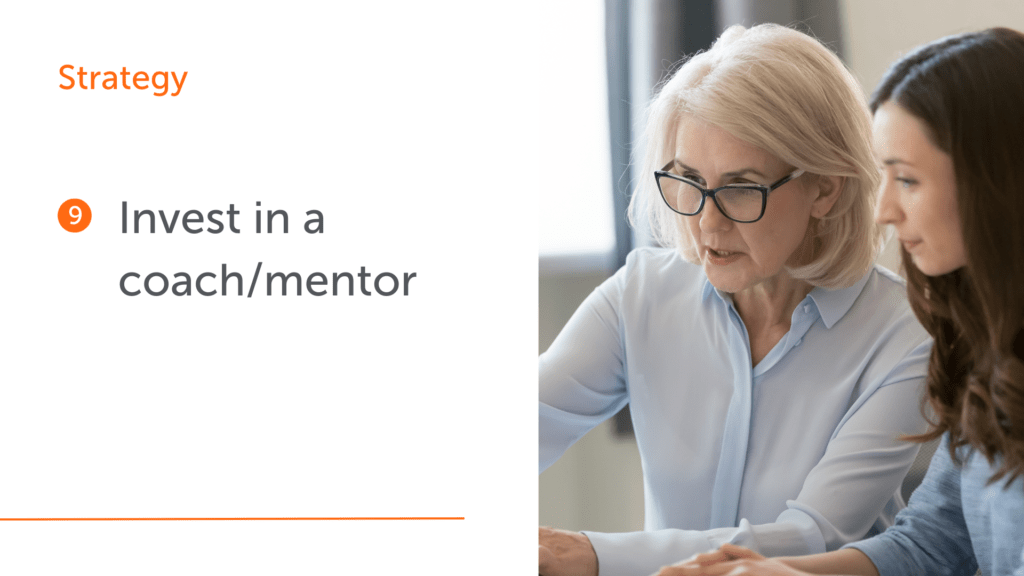
I currently work with a coach named Andy Hartley. Prior to working with Andy I’d had other coaches but I wasn’t truly open to working with them so I didn’t really get the value form them that I could have been getting.
I have business and marketing qualifications and I’ve grown up around my family business so I (rather arrogantly) thought I didn’t need a coach. It turns out, I was wrong. I did need a coach. I believe that every business owner should have a coach.
No matter how smart or driven you are, it’s so difficult to see the wood for the trees when you’re in the thick of running your business.
When I’m out networking and speaking to other business owners that tell me they don’t have a coach, I really emphasise to them how good an investment it is to work with the right person that can guide you through the pitfalls of business.
Every business owner needs a coach or a mentor.
10. Don’t stand still
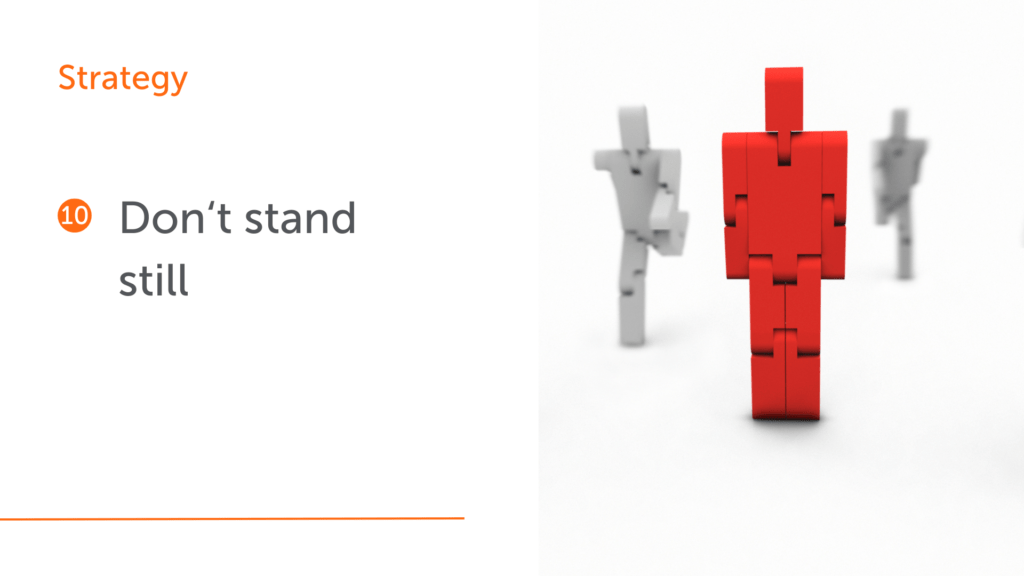
If you stand still, you’ll get left behind. This isn’t just something that applies to the marketing sector, it applies to every sector.
If you look at it just from a technology perspective, things are moving so fast at the moment that if you’re not keeping up to date with the latest systems, your competitors could easily become more efficient than you, which ultimately leads to them becoming stronger than you.
I’ve made the mistake in the past of not keeping on top of the latest movements. This doesn’t happen now because of the way we’re set up as a team.
Community
11. Give something back to the community
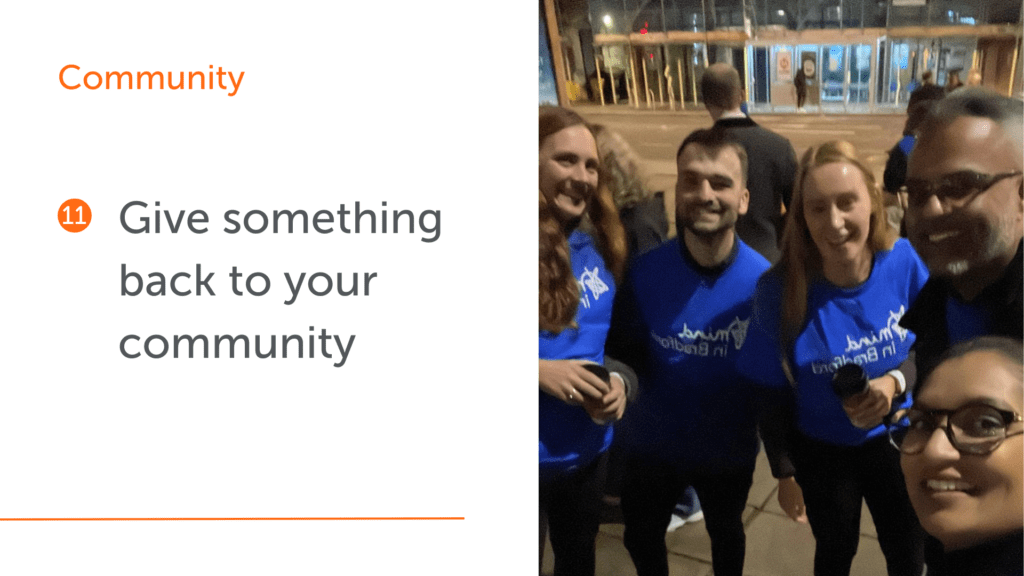
Out of all the 16 lessons I learnt in business this is something I love doing. Over the years we’ve been involved in all kinds of community and charity initiatives. Our purpose at Xpand is to ‘make our mark on the world’ and giving something back to your community is a great way to do this.
Our chosen charity for 2023 is Mind in Bradford. We’ve raised over £2000 for the charity over the last 12 months and as we’ve built a relationship with them, they now use us for paid work.
I want to clarify that getting paid work isn’t the reason we’ve raised money for them. We do that because it’s a great charity. It just so happened that we built a great relationship with them and they asked us to do some work for them.
Think of it as business karma – do good things and good things will come back to you.
People
12. Hire based on values
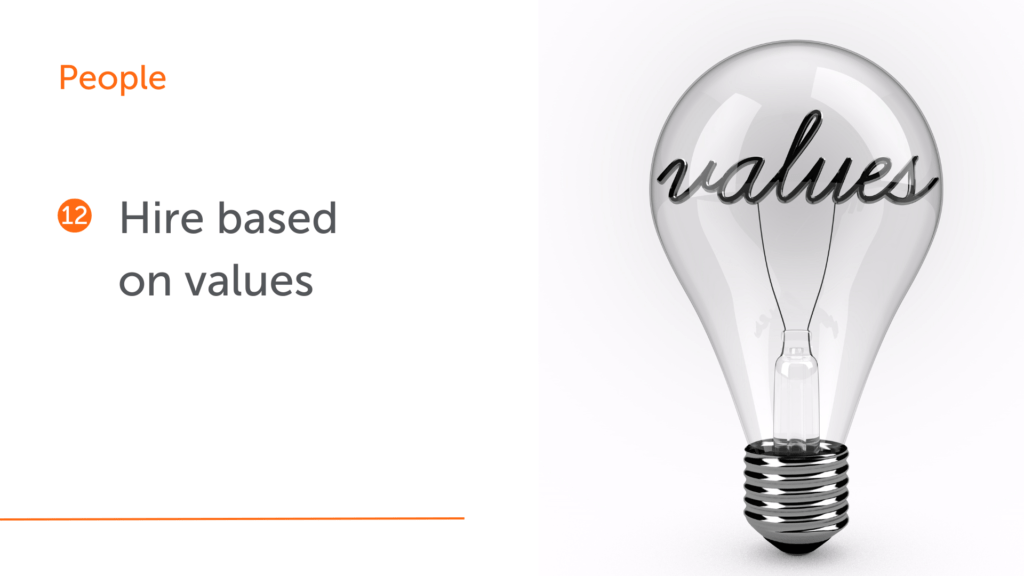
This was a big lesson for me. Some of my early hires were based on the skill set that people had. Some of them didn’t share the same values as me so there was friction in the work place and it become difficult to evolve as a unified team.
As soon as I was able to define and articulate our business values, I learnt that looking out for demonstration of these values in the interview process would ensure I work with people that are all aligned in their beliefs.
Skills can be taught. Beliefs and values can not be taught easily.
Our values are:
- Do good things
- Always evolve
- Speak up, listen up
- In it together
As a team we all hold ourselves accountable to each other and report back to each other in every Monday morning meeting to outline how we feel that one of our colleagues has demonstrated one of our values.
13. Listen to your team
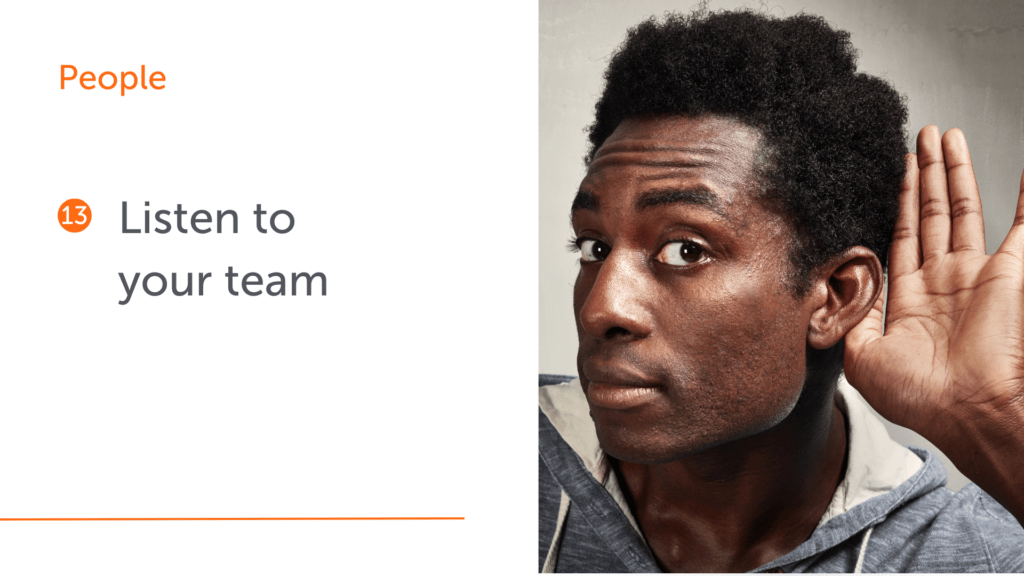
It’s so natural to think you’re the person that knows it all when you’re in business. When the business is your little baby, you become very protective of it and naturally want to hold on to decisions.
Steve Jobs once said ‘hire people that are smarter than you and listen to them’. He was right. When the penny finally dropped and I started taking my teams suggestions on board I discovered a number of things:
- They became more engaged as they felt more involved and their opinion mattered
- There was less weight on my shoulders to make every decision
- More heads in the decision making process means more ideas, and in the creative sector, that’s exactly what you want!
I’m so grateful to have such a great team around me.
You
14. Making mistakes is part of the process
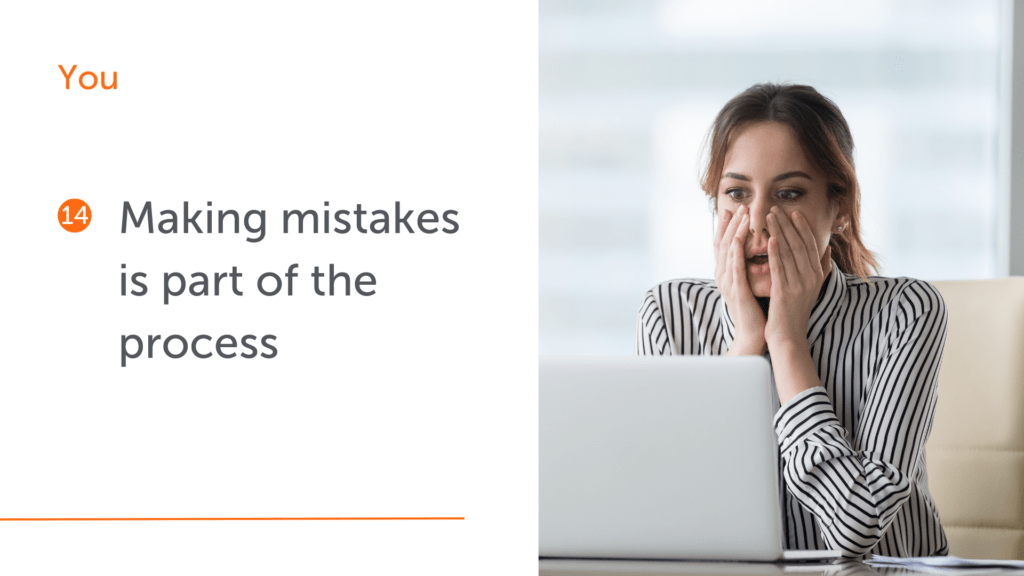
There’s a saying ‘fail fast, fail hard’. It’s true. You can’t be afraid of failure. Making mistakes is one of the most valuable lesson of the 16 lessons I learnt in business.
I used to beat myself up over mistakes I’d made. ‘Why didn’t I see this coming?’ is often what I’d ask myself.
Off the back of that, I developed ‘perfection paralysis’. I wouldn’t let a piece of work go out into the world until it was what I saw to be perfect. But the knock on effect of that was that everything started getting delayed.
The reality is that what I class as perfect, 80% of that is still good enough to go out into the world.
15. Always review where you’ve been
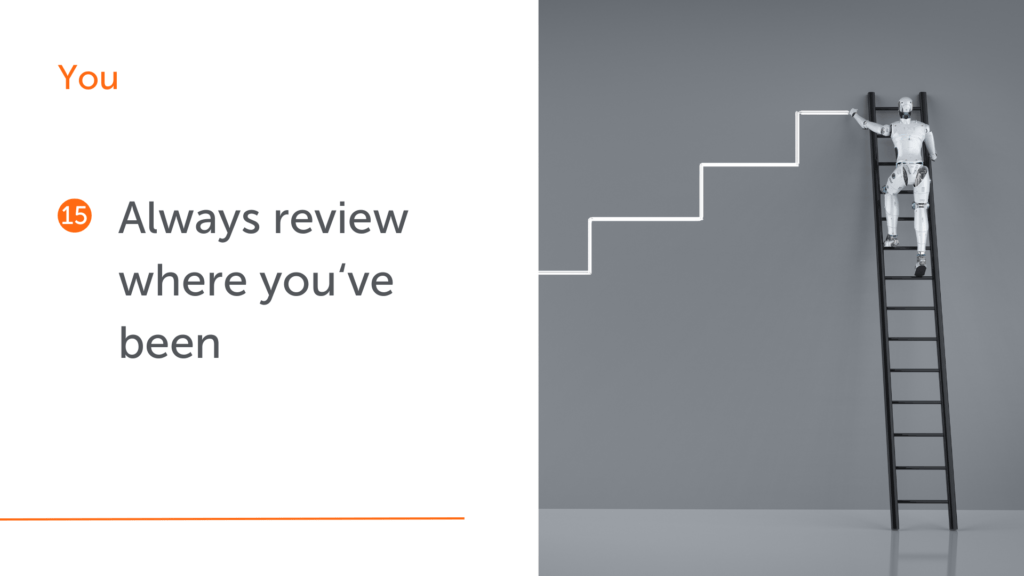
It’s easy to focus on the negative things happening around you. It’s almost part of human nature. So it’s really important to regularly review where you’ve been and list all the good things that have happened and what you’ve achieved.
When you’re in business on your own, there’s no manager to give you an appraisal, so you have to do this yourself.
It’s important to look back and congratulate and reward yourself for the things that you’ve achieved.
I used to frequently get bogged down with negative thoughts and think I’ve not achieved anything. But when I stopped and reviewed things and wrote them down, I was able to remind myself of all the great things that I’d sone and how I’d progressed as an individual as well as in business.
16. Look after yourself

In my opinion, this is by far one of the most important lessons of the 16 lessons I learnt in business. There’s a lot of awareness around this kind of thing at the moment – workplace wellbeing and mental health. It’s very important.
I don’t think I’ve ever had ‘burn out’, but I do know that I’ve had a lot of stressful moments in the past. Looking back, I know I could have managed that stress much better if I took more care of myself.
I used to think I was invincible. I used to think that with the right mindset I could overcome anything. And I still do – BUT – you can’t overcome things if you’re not looking after yourself. There were times when I wasn’t getting enough sleep because of my social life, I was eating a lot of bad food, I was drinking more than I should have, I wasn’t exercising – basically I was doing all the things that lead to an unhealthy body and therefore an unhealthy mind.
Your body and your mind are just like a battery, they need time to recharge, and I went through stages where I wasn’t allowing the recharge to happen.
I now know I need to take regular time out for myself and do the things I enjoy outside of work. I’ve found that since doing that, I’m much more focussed at work which is more motivating for my team.
It’s an easy lesson to forget when you get bogged down and busy and I have to regularly check in on myself to make sure I’m looking after myself, and I’d urge you to do the same thing.
So folks, these are 16 lessons I learnt in business. How can they help you?
Well, that’s up to you. If something I’ve talked about has resonated with you, maybe my experience and learning is something you can learn from too.

